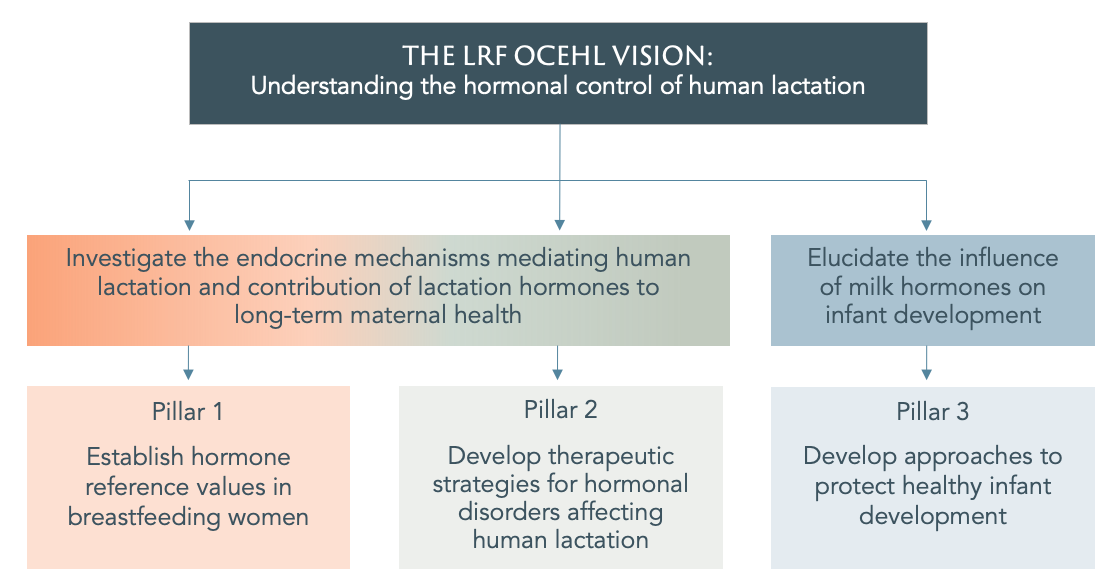Why does lactation insufficiency happen? What can be done to increase the number of infants exclusively breastfed worldwide?
At present, very little is known about the endocrinology of human lactation and why breastfeeding also provides significant long-term health benefits to mothers. Gaining a better understanding of how hormones influence the process has the potential to improve global infant and maternal health outcomes.
The Larsson-Rosenquist Foundation Oxford Centre for the Endocrinology of Human Lactation (LRF OCEHL), led by Prof Fadil Hannan, was established to address this critical topic. The Centre is building a holistic understanding, using molecular and clinical research, of how hormones regulate human milk production. Understanding how hormones, such as prolactin and oxytocin, influence lactation is crucial to helping mothers who are struggling to breastfeed.





